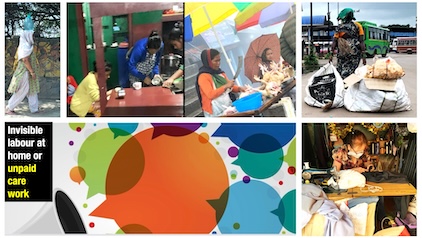Whither social justice and decent work for women?
SHOBHA SHUKLA - CNS
"As we celebrate the Labour Day let us celebrate the women of the world, because it is the women who are holding this world together..." so said Betty Ogwaro, Member of Parliament and former Agriculture Minister of South Sudan, while speaking at a special session of Gender Equality Talks, focussing on "invisible labour at home: the unpaid care work." Women shoulder the hardest of labour (paid and unpaid, visible and invisible) but seldom get recognition, rights, and justice.
International Labour Day is observed on May 1 every year, to recognise the contributions of workers, advocate for their rights, and promote a fairer and more sustainable future of work for all. This year, the focus is on "Social Justice and Decent Work for All".
Every day is an unpaid Labour Day for most women
But where is this social justice for women? Every day is an unpaid labour day for a vast majority of them. As per current estimates, over 75% of the world's total unpaid care work is done by women. Unpaid care work refers 'to all unpaid services provided within a household for its members, including routine housework, child care, care of the elderly and other household members'.
Gender disparities in unpaid care work are observed globally, with women spending two to ten times more hours than men on unpaid caregiving and domestic work on physically strenuous and emotionally exhausting unpaid household chores like cooking, cleaning, child rearing, caring for family members, etc.
Citing the plight of rural women, Betty says that as agriculture is the mainstay in South Sudan, the day to day life of rural women revolves around farming. "They do all the work- till the land, plant the seeds, weed and harvest the crop, store it. But once it becomes a 'product', it is the husband, and not the woman, who controls it. If the produce is sold the money belongs to the man and not to her." Also if they want to expand their agricultural activities, women cannot borrow money from the bank because they do not own any property -neither land nor house- in their name to use as collateral.
(Note: You can view every article as one long page if you sign up as an Advocate Member, or higher).






